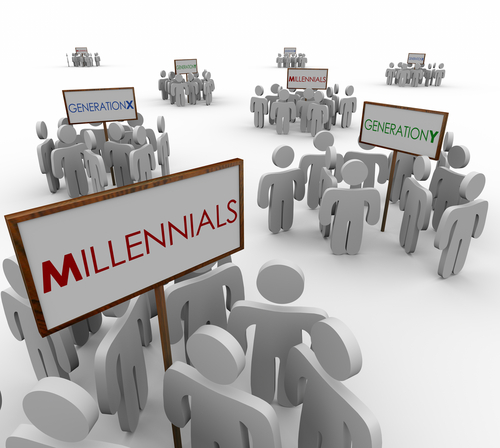“Stop acting like such a Karen.”
“Maybe you should work harder, you lazy millennial.”
“Okay boomer.”
This conversation never happened. It’s a gross simplification of a growing generational divide in this country. It’s been simplified to a near meme status, it’s almost funny. That’s why terms like Karen live on the internet, populating twitter and other social networks- because they’re a meme-able way of expressing an ideal.
They’re tongue and cheek expressions aiming to articulate a larger cultural phenomenon- a deep divide between generational values. These memes are symptoms of a greater problem: the inability to establish productive, cross-generational communication.
This is an especially dangerous issue for the American workplace, as younger generations begin joining the workforce. This isn’t a problem exclusive to Millennials or Gen-Z either. This miscommunication occurs cyclically, as new generations rise to a working age. That said, if the inability for generations to communicate and reconcile their values continues, the sting of turnover and misaligned company cultures will persist.
To start, let’s cut the mudslinging. Both generations tend to stereo-type the other, which isn’t productive and perpetuates negative perceptions that aren’t rooted in reality. For example, there isn’t any evidence to suggest that younger generations are lazy. Instead, younger generations are looking for company cultures where they can make an impact and see their contribution. They are far less content to feel like cogs than their older counterparts. Part of this has to do with the death of company loyalty to its employees and the increasing ambiguity regarding career ladders in organizations. It’s a complex issue and the act of branding it as lazy is lazy in and of itself.
Slow down Gen-Z folks, you’re not off the hook. The same stereo-typing happens in reverse. There is an odd idea floating around that conventional, older wisdom is without use or value. Flippant, meme-able remarks like okay boomer are inherently dismissive. The idea that the old world is responsible for all the misfortune plaguing the economy, the climate, and your future prospects isn’t accurate either. We can argue back and forth as to who’s fault the climate crisis is but if we cut the bull and hit brass tacks, it’s not Grandpa Joe’s fault. It’s a government/corporate problem that started long before his time. Billy Joel’s We Didn’t Start the Fire comes to mind. If we really scrutinize the state of affairs, the generations don’t behave all that differently- so maybe the boomer has some conventional wisdom that should be heeded.
If we’re going to properly synthesize the workspace, three things have to happen. Younger generations have to stop miss-assigning blame. Older generations MUST stop condescending younger generations and begin recognizing the value and skill sets younger generations bring. Remember, the ultimate goal is to pass off the American workplace to these younger generations, not fight that transition. And lastly, all sides have to communicate.
Ironically, I understand that this article in and of itself is a gross simplification of the generation-gap issue. But just as simplified terms like Karen have a lot to teach us about underlying ideals, this article might as well.
Aris Federman is the E-Learning Specialist and Creative Director of PerformancePoint, LLC.

